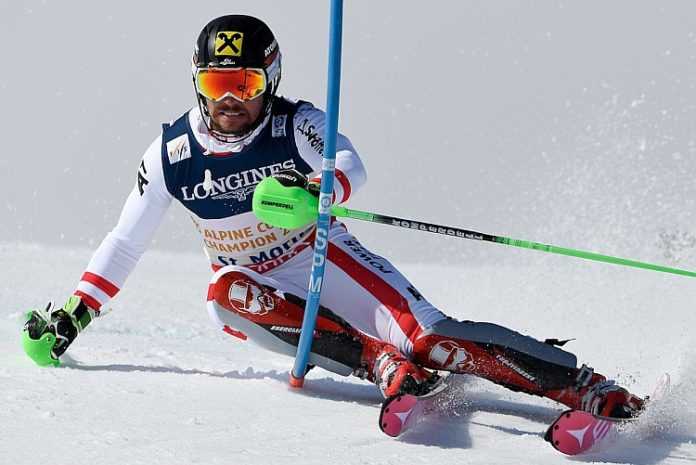 Friday’s stunning revelation that the president of the Japan Olympic Committee, Tsunekazu Takeda, is under investigation in France for corruption is the most serious blow to the International Olympic Committee in 20 years.
Friday’s stunning revelation that the president of the Japan Olympic Committee, Tsunekazu Takeda, is under investigation in France for corruption is the most serious blow to the International Olympic Committee in 20 years.
Back in 1998, the IOC was rocked by the Salt Lake City scandal in which bribes and gifts were given to IOC members in order to assure Salt Lake City’s selection as the site for the 2002 Olympic Winter Games. Ten IOC members were expelled and 10 more were sanctioned and IOC members – except for an Evaluation Commission – were banned from visiting future bid cities, a restriction which continues today.
The announcement Friday that a French judge, Renaud Van Ruymbeke, “now suspects Takeda – a former Olympic showjumper, longstanding Olympics official and second cousin of Emperor Akihito – of paying bribes to secure his nation’s winning bid,” according to a Reuters report.
In specific, the French judiciary has been looking at the payment of $2.325 million to a Singapore-based consulting firm called Black Tidings, which was linked to Papa Massata Diack (SEN), the son of the former IAAF president and IOC member Lamine Diack (SEN), which is under house arrest in France awaiting trial on bribery and extortion charges.
This is not a new allegation and the Japan Olympic Committee investigated it and released a report in 2016, concluding that the $2.325 million payment to Black Tidings was for consulting related to the bid and its outreach to African members of the IOC, and not a bribe.
Takeda, as chief of the Japan Olympic Committee, issued a statement that “the Tokyo 2020 Bid Committee can confirm that it paid an amount for the professional services received for the following consultation work including; the planning of the bid; tutoring on presentation practice; advices for international lobbying communications; and service for information and media analysis.”
“All these services were properly contracted using accepted business practices.
“The payments mentioned in the media were a legitimate consultant’s fee paid to the service we received from Mr. [Ian Tan Tong Han]’s company. It followed a full and proper contract and the monies were fully audited by Ernst & Young ShinNihon LLC.”
The French judge does not agree.
As it turned out, Tokyo probably didn’t need the help, as it was the leading vote getter in both rounds, by 42-26-26 vs. Istanbul (TUR) and Madrid (ESP) in the first round and 60-36 over Istanbul in the final round. But a breakdown of the Black Tidings services by the GamesBids.com site noted that the $2.325 million was paid for two contracts: the first for $950,000 for three months work from July-September 2013, at the climax of the bid process for the 2020 Games, and a second, for $1.375 million, for two months work after the bid was won, reviewing the factors behind the victory.
That’s $2.325 million for five months work. What this was actually about is what the French judge is trying to figure out.
The new allegations against Takeda, which are not equivalent to an indictment, but which indicate that an investigation that could lead to formal charges is well advanced, explain why there was no 2018 trial of Lamine Diack, the father of Papa Massata Diack, as had been expected. There is more to be unearthed.
Lamine Diack has been accused to accepting bribes to have the IAAF ignore Russian doping positives, and to act as a conduit for bribes to African members of the IOC in connection with the 2009 selection of Rio as the site for the 2016 Olympic Games.
Papa Massata Diack has remained in Senegal, which refuses to extradite him to France, and has stayed quiet, denying all of the charges against him. In the meantime, a trial in Brazil of former Rio 2016 and Brazilian Olympic Committee chief Carlos Nuzman for bribery related to the selection of Rio is in recess awaiting requested evidence about the $2 million payment in 2009.
But now the French inquiry is – apparently – closing in on evidence that bribes may have been involved with regards to votes from its African members for both the 2016 and 2020 Olympic Games, both involving one or more Diacks.
A finding of illegal conduct by the French would be a devastating blow to the IOC. Its President, German Thomas Bach, has repeatedly characterized the IOC as a “values-based organization” vs. one which is commercially based. But now, it is potentially staring at the unenviable task of fending off the dual accusations that either the Games are for sale – as in 2016 and 2020 – or that (almost) no one wants them, as has been the situation for the 2022 and now 2026 Olympic Winter Games.
In today’s fractious times, the inevitable cry will be to vaporize the IOC and turn the Olympic Games over to someone else. The United Nations?
That isn’t going to happen, as the modern Olympic Games is a wholly-owned, commercial property that belongs to the IOC and the IOC alone.
But the old maxim, of “Fool me once, shame on you; fool me twice, shame on me,” could further damage the IOC’s standing at a time when it has had some positive achievements, such as the founding of the International Testing Agency, assignment of the 2024 and 2028 Games to Paris (FRA) and Los Angeles (USA) and a successful Youth Olympic Games in Buenos Aires (ARG) last October.
Countries could run away from hosting future Games, and sponsors and – most importantly – broadcasters and other news media could decide to pare back their coverage, which is the lifeblood of the entire Olympic Movement. The IOC has a U.S. broadcast agreement with NBC that runs through 2032 and as long as that relationship stays intact, the IOC will stay intact, too.
But if the Olympic Games becomes more malodorous as an entity – not the athletes, but the event – the future of the IOC and the Olympic Movement could be challenged in an existential way not seen since 1998 and perhaps not since the murders of Israeli athletes and officials at the 1972 Munich Games.
In recent years, the financial excesses of putting on the Games have rendered the event unpopular in many likely host countries. Now, an even darker question could circulate among potential bid cities, broadcasters, sponsors and spectators: what, if any, value is there in having the Games at all?
Against a backdrop of bribery and corruption, even the spectacle of 200-plus nations standing together on the Olympic stage may not be enough to maintain its allure.
The IOC needs to audit its members and make those audits – as painful as they may be – public. It must become more publicly open about its process for choosing new members, and tighten its processes for its operations to avoid corruption. The IOC and the Olympic Games are not in danger, today. But, as the line from “Gone With The Wind” goes, “tomorrow is another day.”
Rich Perelman
Editor

























